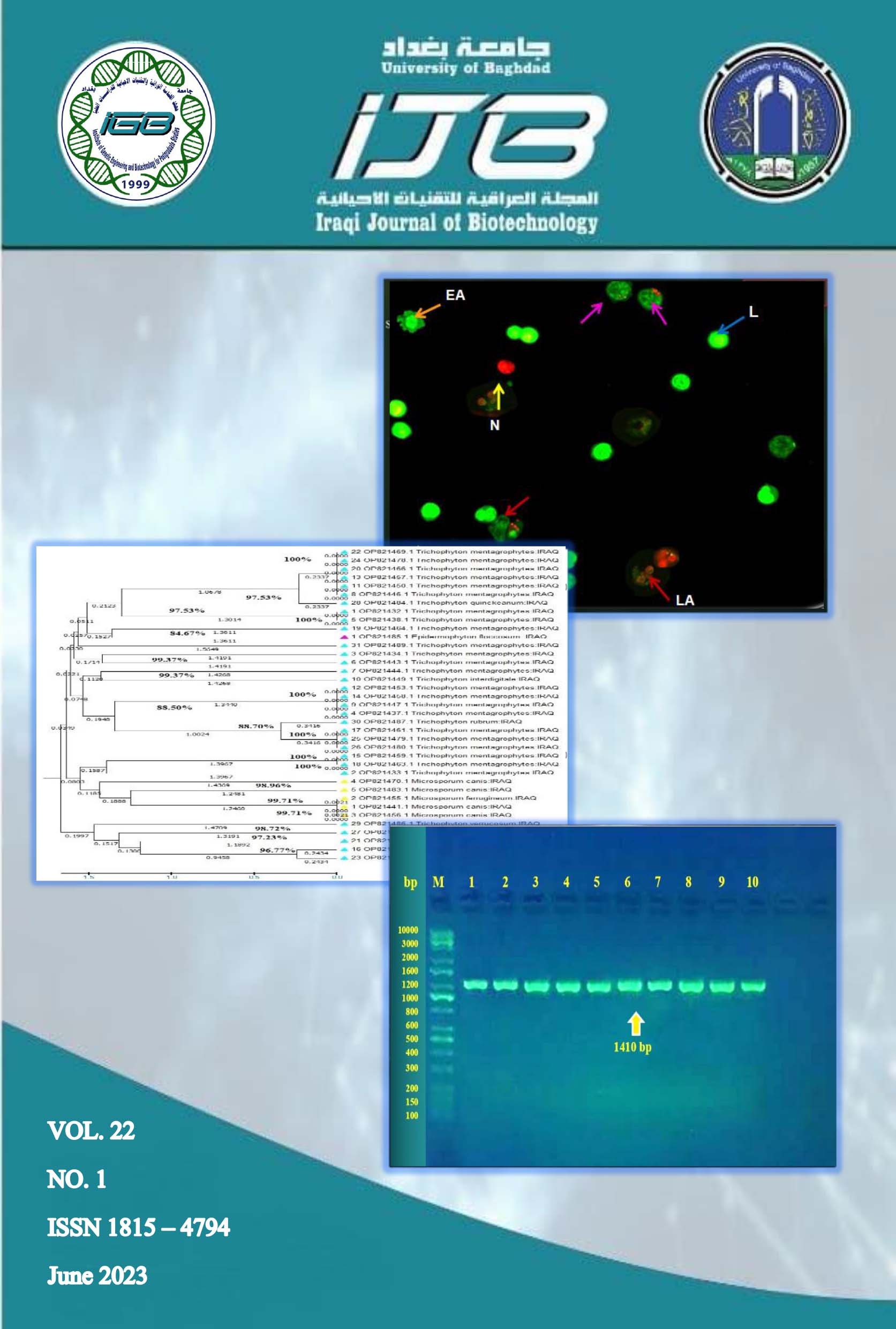Molecular Study of Carbapenem Resistance Genes in Proteus mirabilis Isolated from Clinical Samples in Baghdad Hospitals
Abstract
The majority of Proteus species are opportunistic pathogens that infect humans with a variety of illnesses including, infections of the respiratory system, nose, eye, ear, skin, and throat, as well as wounds and urinary tract infections. The aim of this study to isolate and identify of Proteus mirabilis; molecular screening of carbapenems Resistance genes (blaOXA-48, blaOXA-58 and blaOXA-23) of Proteus mirabilis and analysis its prevalence among local isolates in Baghdad. Two hundred and fifty samples have been collected from urine, ear swabs, burn and wound swabs of patients of both sexes and different age from several hospitals in Baghdad. The time between October 2022 to until the end of March 2023, has been used for the collecting of samples. From inpatients and outpatients in four hospitals in Baghdad. Gram's staining, microscopic examinations, cultural on MacConkey agar and blood agar plates and biochemical properties were used to identify all isolates. The diagnosis was confirmed through VITEK-2 system. According to the diagnostic results, out of 250 clinical samples, 225 were found to be positive, with 65 (26%) of the 250 isolates being Proteus mirabilis, while the remaining 160 (64%) belonged to other bacterial species. Antibiotic sensitivity test against 16 different antibiotics showed that Proteus mirabilis was highest resistance Piperacillin (89.2%), Cefotaxime (87.6%), Ceftazidime (86.1%), Cefepime (81.5%), Trimethoprim / Sulfamethoxazole (78.4%), Gentamicin (76.9%), Tetracycline (75.3%), While there is less resistance at Doxycycline (69.2%). On the other hand, moderate resistance Ceftriaxone (58.4%), Amoxicillin-clavulanic acid (56.9%), Amikacin (53.8%), Aztreonam (41.5%), and Ciprofloxacin (40%). Based on the results of the current study, P. mirabilis had only low levels of resistance to Levofloxacina (33.8%), Imipenem (15.3%) and Meropenem (1.5%). Conventional PCR using 16S rRNA housekeeping gene to Detection all isolates were P. mirabilis. In conclusion, Carbapneam resistance genes were identified by PCR. It was concluded that the existence of the OXA-23 gene gave (15, 61, 40, 43, 31, 21) isolates to be 60% resistant to carbapenem, whereas the presence of the OXA-58 gene in (6) isolates to be 60% resistant.


